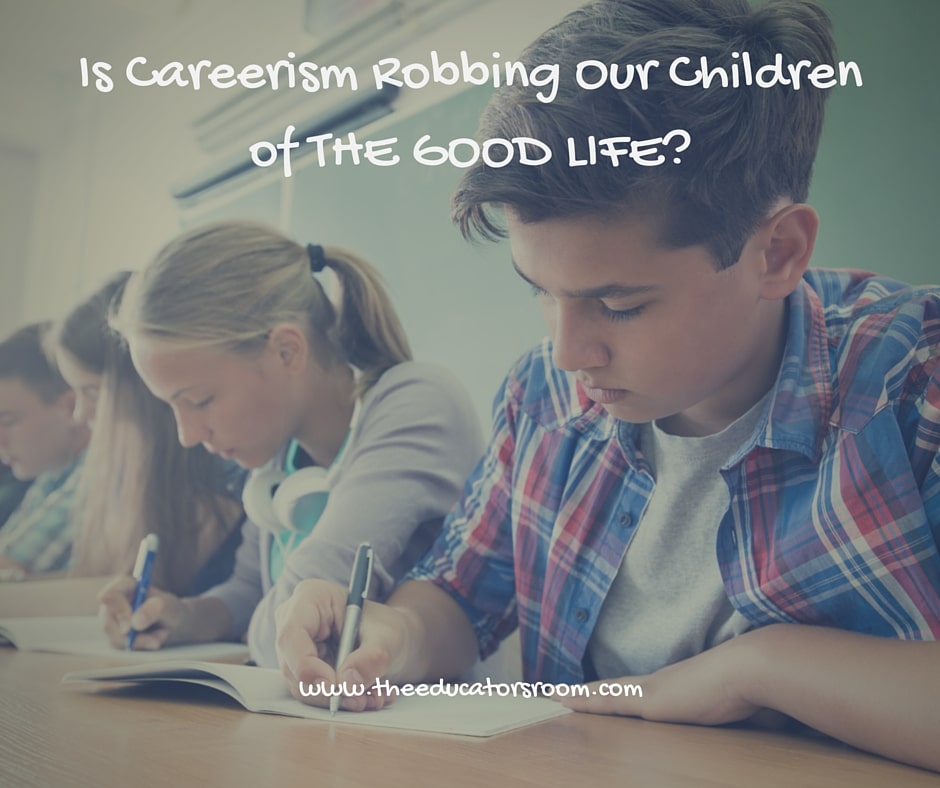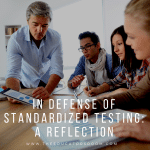Another week, another conversation with my newly-minted teenage daughter, Lauren, who has decided that “this time,” yes, “this time I know what I want to do when I grow up.”
It’s not just that Lauren has big dreams. It’s that she has so many of them.
She wants to live in the mountains and hike exotic trails at sunset. She wants to live on the beach and surf the waves as the sun rises over a sprawling horizon. She wants to travel the world, speak a dozen languages, and master the nuances of every culture she encounters.
She also—somehow—wants to remain geographically close to her family.
For the longest time she wanted to be a pediatrician. Then an artist. Next was an actress. A novelist was the goal for a few fleeting months and now she seems, at the moment, to have settled on “biomedical engineering.”
As she knowingly explained to me, “Dad, the 19th century belonged to evolutionary biology, the 20th belonged to quantum physics, and the 21st is going to center on gains in medicine. A century from now the way we think about lifespans and disease will be so different it boggles the mind. I want to be a part of that.”
After she is done revolutionizing medicine she wants to go teach elementary school.
Oh yes, she also wants to have a meaningful marriage, be a mother as good as her own (a high bar), and have a beautiful home.
The child does not lack ambition.
But it is an ambition centered not on self-aggrandizement and the celebration of the self. No, Lauren’s awareness of how vast the world is and how limited any one human being’s opportunities are within that world fuels her eclectic assortment of dreams. Her youthful but vivid recognition that grandeur exists in the world reminds me of the greatest quote from Anthony Doerr’s exquisite novel, All The Light We Cannot See, “Open your eyes and see what you can with them before they close forever.”
Lauren is only thirteen and already she knows time is running out for her. One day her eyes will close forever. One day the last sand in the hourglass of her life will drop from one glass bulb into the other. It is the elusive problem of time—and it is not just one problem: it is perhaps the problem of the human condition. We have time to live but how much time we do not know. More to the point, we have time, but do not know exactly what to do with it.
The world is so big, so congested with constellations of possibilities, and yet our options are limited. This, essentially, is the problem Lauren will confront for the entirety of her life.
I cannot help but believe, however, that it is a good problem to have. Or to phrase it another way: it is a good problem to be aware of. It is a problem born out of an urgency to live well and a recognition that life is a gift so precious and pure it transcends conventional gesture of thanksgiving.
I am proud that Lauren recognizes it at such a young age, but it has me wondering if the education we provide most American children lead them to experience similar yearnings of enchantment.
Ambitious and focused American students are often encouraged to specialize soon and narrow their focus quickly. The pervading wisdom of the age is that education should have a “pay off” down the road, especially in the age of hyperinflationary tuition costs.
Acquiring highly technical skills or attaining valuable knowledge is a long and winding road and getting started as soon as possible is preferable to the meandering odyssey of those non-decisive souls whose degree choices are decidedly less lucrative.
Right?
In our zest to robustly test skills and preach an education oriented around commercial practicality, I worry that “the good life,” as classically understood by Aristotle, is haphazardly subordinated to a “commercially viable” modern one; one in which the value of an education is not measured by the quality of a student’s life but in the usefulness it offers to employers of the future.
Of course, these two aims need not be mutually exclusive. But so many students either find nothing particularly interesting (the uninspired teenager) or they believe they must shun the vastness (and beauty and enchantment) of the world in order to master one particular corner of it (the utilitarian teen). They wish to be “productive” and “valuable.” Understandably, they want to be valuable in labor markets and view their educational journey as the way of maximizing this value.
But a successful life requires much more than a successful career. As Euripides once wrote, “How can you think yourself a great man, when the first accident that comes along can wipe you out completely?”
What does a successful life look like? Perhaps…overcoming the accidents of life that are certain to befall and befuddle us all; being valuable not just to an employer but to a spouse, a child, or a friend; having the courage to sample life’s many flavors with juvenile abandon; recognizing that performing in the theater of work is important, but it does not constitute the most important performance of all.
Indeed, a single drop of the ocean cannot hydrate the soul for long. Having a successful career is great; having a full life is better. There are abundant waves to ride and with it plentiful islands to inhabit. Counseling young people to master a single wave does a disservice to the vastness of what can lie ahead.
Shouldn’t the education we offer our children acknowledge this fundamental truth? I am not so sure that it does.
We want our children to inherit and create. We want them to be critical thinkers but not mavens of vacuous nihilism. We want to open their eyes as widely as possible but also to be able to focus on the problems that plague them and their fellow citizens. We want them to praise what is praiseworthy. Stand tall against the winds of misfortune. And appreciate the enchantment of what is both cosmic and local. Ultimately, we want them to agree with Thoreau that, “the universe is wider than our views of it.”
How do we consecrate the ultimate marriage of all: the union of education with the attainment of “the good life?” Perhaps we teachers hesitate to use this particular parlance of grandiloquence—“the good life”—for fear that it unwittingly brands us as outdated classroom romantics espousing the heretical belief that getting a job is—gasp!—not the ultimate aim of what we do.
The ancients understood that the good life requires an artful balance of thought and action, engagement and withdrawal. Ambition untethered from reflection is both dangerous and unending—for it spawns a sad Sisyphean journey that can only end in a quiet and listless feeling of dissatisfaction.
I want Lauren to dream big, hope hard, and open her hands to the unexpected in life. Sadly, expecting that what she learns in school should somehow form and foster these hopes into a reality is perhaps a bit naive given the titanic emphasis we now place on career training and marketplace viability
If Lauren fails to have a good life because she made poor decisions or embraced the hollow over the substantial, it would certainly be disappointing, if not devastating, to her mother and me.
What is more likely, for most students, however, is that they will never live “the good life” because they never associated it with learning or the enterprise of education. What a perilous path we educators of today walk if we fail to ask the difficult questions of our students, if we balk when musing about the simple conundrums of being alive, if we hide our students from the cryptic concerns of being mortal.
The good life is not the reaching of a fixed and certain destination; it’s sampling the possibilities that all of the exits have to offer.






Leave a comment